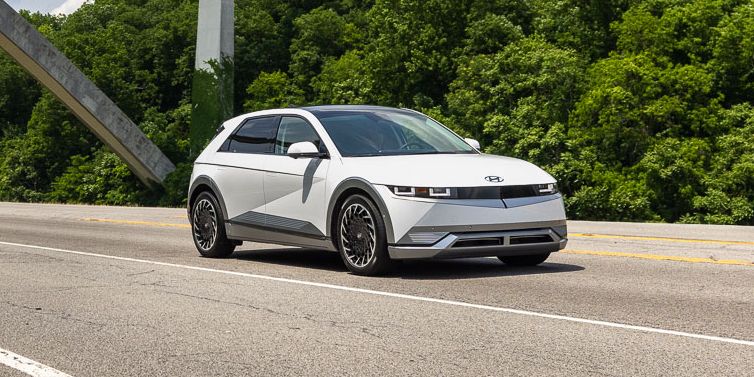- Hyundai’s popular all-electric Ioniq 5 crossover is now the subject of a federal safety probe, following dozens of customer complaints about losing power while driving.
- The NHTSA is investigating the problem in conjunction with Hyundai, and the preliminary cause has been identified as the Integrated Control Charging Unit.
- Responsible for powering the electric propulsion system and typical 12V battery, Hyundai says it will first try a software reset before potentially replacing the ICCU in a July service campaign.
The electric-vehicle industry as a whole is going through growing pains, from charging infrastructure woes to range limitations. Manufacturers are experiencing these challenges as well, with brands like Ford and Jaguar issuing recalls related to their respective fledgling battery technology. And it appears Hyundai’s quirky Ioniq 5 crossover may be next.
That’s because the popular model is now the subject of a federal safety probe from the National Highway Traffic Safety Administration. Following 30 customer complaints of power loss in motion, the safety probe will now be led by the NHTSA’s Office of Defects Investigation, though its full scope is still unclear.
“Many consumers report a loud pop noise followed by a warning displayed in their dashboard and immediately experience a loss of motive power that ranges from a reduction to a complete loss of motive power,” the preliminary report reads.
Hyundai is cooperating with the NHTSA in this investigation. As a result, the joint team has determined the loss of power stems from the Integrated Control Charging Unit (ICCU), a part that powers both the hybrid vehicle battery and the low-voltage 12V battery. Specifically, Hyundai says early analysis indicates consistent overcurrents within the ICCU can result in damage to the 12V battery charging system.
This content is imported from youTube. You may be able to find the same content in another format, or you may be able to find more information, at their web site.
“We value our cooperative relationship with NHTSA and have engaged in a frequent, open, and transparent dialogue with the agency on this topic,” a statement from Hyundai reads.
No recall has been issued yet and Hyundai says these power issues are only affecting 2022 model year Ioniq 5 units. Additionally, the company says it will roll out a service campaign in July to update software and even potentially replace the ICCU in affected models. Notably, a recall related to a defective ICCU was issued for South Korean-delivered Ioniq 5 models earlier this year, as reported by The Autopian.
According to the NHTSA, over-the-air updates can be and often are considered recalls, even if they don’t follow the traditional mechanical repair methodology. This dichotomy has already played out with many first-generation electric vehicles and their respective software, but the problem with the Ioniq 5 appears mechanical. For Hyundai, this could mean a more costly repair, especially if replacing the ICCU becomes necessary.
Have you ever been affected by a major recall like Dieselgate? Please share your experiences below.
Associate Editor
A New York transplant hailing from the Pacific Northwest, Emmet White has a passion for anything that goes: cars, bicycles, planes, and motorcycles. After learning to ride at 17, Emmet worked in the motorcycle industry before joining Autoweek in 2022. The woes of alternate side parking have kept his fleet moderate, with a 2014 Volkswagen Jetta GLI and a 2003 Honda Nighthawk 750 street parked in his South Brooklyn community.
Read the full article here


